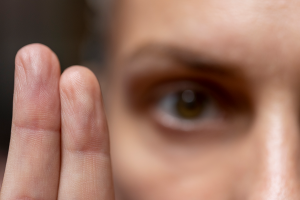Imagine a world where toys and games become the language of healing. That’s exactly what play therapy is for kids. Play therapy is a way to communicate their emotions and problems with their therapist – and eventually other people in their lives. Instead of sitting in a therapist’s office and talking about their feelings, children get to play with dolls, action figures, art supplies, and other toys. Through this play, they reveal their thoughts and emotions in a safe and supportive environment.
Types of Play Therapy
There are many types of play therapy and various approaches to using play therapy with kids:
Child-Centered Play Therapy
This type focuses on letting the child lead the play. The therapist observes and participates as needed, offering support and guidance while allowing the child to decide the tools for the play therapy session.
Directive Play Therapy
In this approach, the therapist takes a more active role, guiding the play and introducing specific activities or themes to address particular issues.
Sandplay Therapy
This involves using a sandbox and various miniature figures. Children create scenes in the sand, which can help them express and discuss complex emotions and experiences.
Art Therapy
This type incorporates drawing, painting, and other creative activities, allowing children to express their feelings through art.
Play Therapy Techniques
Therapists use a variety of techniques in play therapy to help child clients express themselves:
- Role-Playing: Children act out different scenarios, which can help them process real-life experiences and practice new behaviors.
- Storytelling: Kids create stories with the help of the therapist, which can provide insights into their thoughts and emotions.
- Puppet Play: Using puppets allows children to project their feelings onto the puppet, making it easier to talk about difficult subjects.
- Music and Movement: Incorporating music and dance can help children express themselves in a fun and freeing way.
Benefits of Play Therapy
Here are just a few benefits that play therapy can provide children:
- Emotional Expression: It provides a safe space for children to express their feelings, which is especially important for those who struggle to verbalize their emotions.
- Problem-Solving Skills: Through play, children learn to navigate challenges and develop problem-solving skills.
- Improved Behavior: Play therapy can help address behavioral issues by teaching children healthier ways to cope with their emotions.
- Enhanced Communication: Children become more comfortable expressing themselves, leading to better communication with parents, teachers, and peers.
- Boosted Self-Esteem: Experience success in play therapy activities can help build a child’s confidence and self-esteem.
Try Play Therapy in Birmingham, AL
Play therapy for children is a powerful tool that uses the natural language of play to help kids express and process their emotions. Whether through sandplay, art, or role-playing, play therapy techniques offer a variety of ways for children to communicate and heal. The benefits of play therapy are far-reaching, making it a valuable approach for helping children navigate their emotional and behavioral challenges. Play therapy helps create supportive environments where children feel seen, heard, and understood.
If you’re interested in learning more or considering play therapy for your child, Birmingham Anxiety & Trauma Therapy has several therapists with expertise in helping your child through play therapy. Contact us to learn more or book an appointment.







